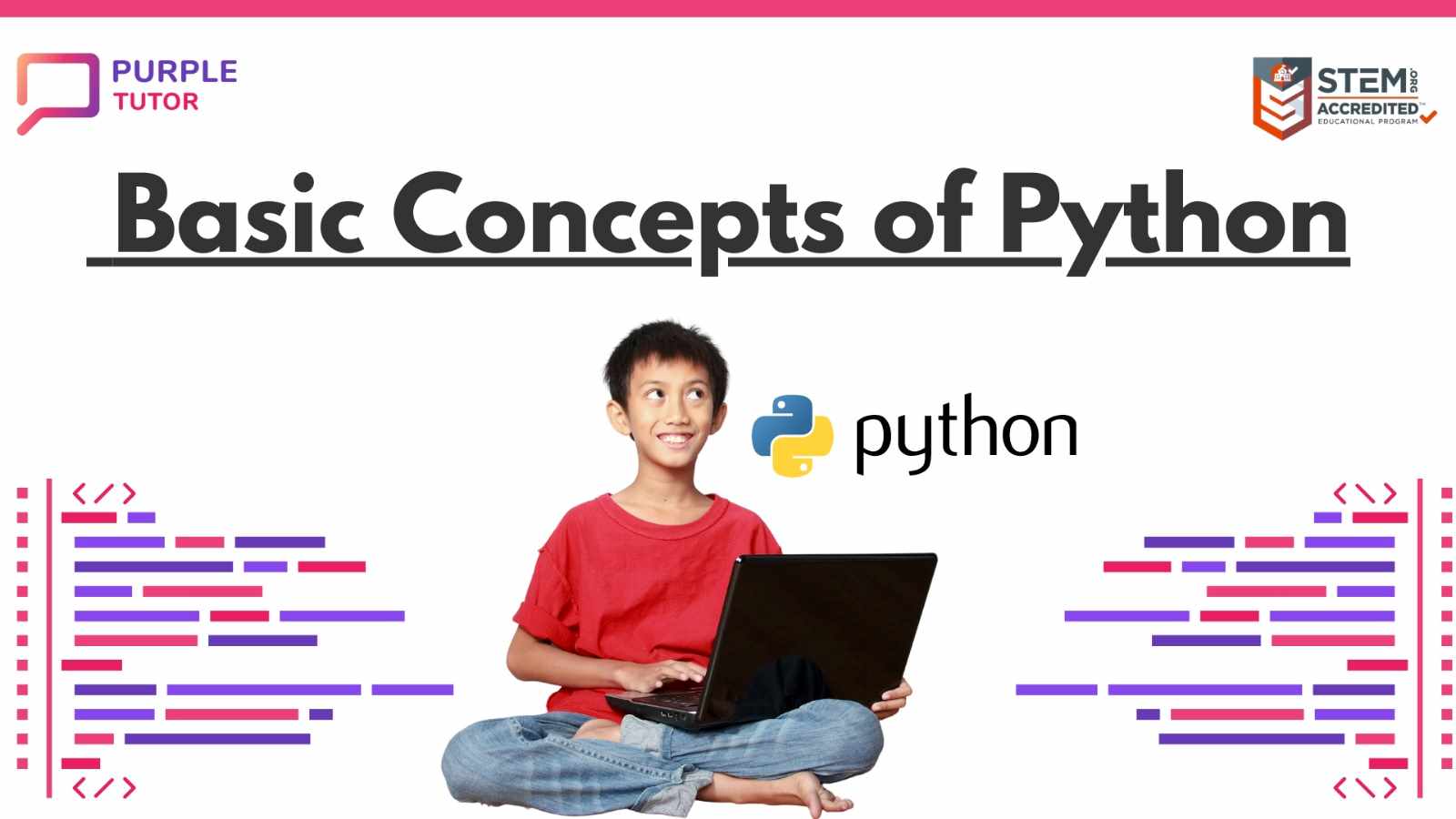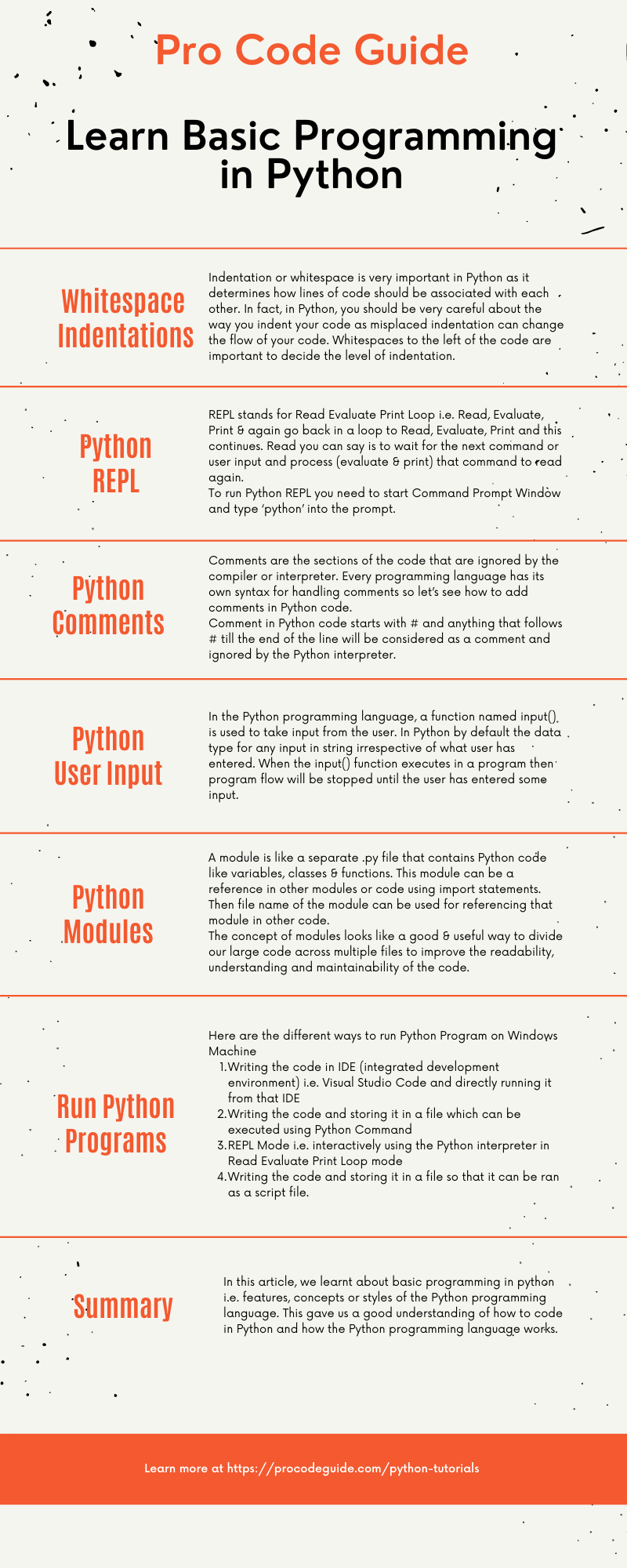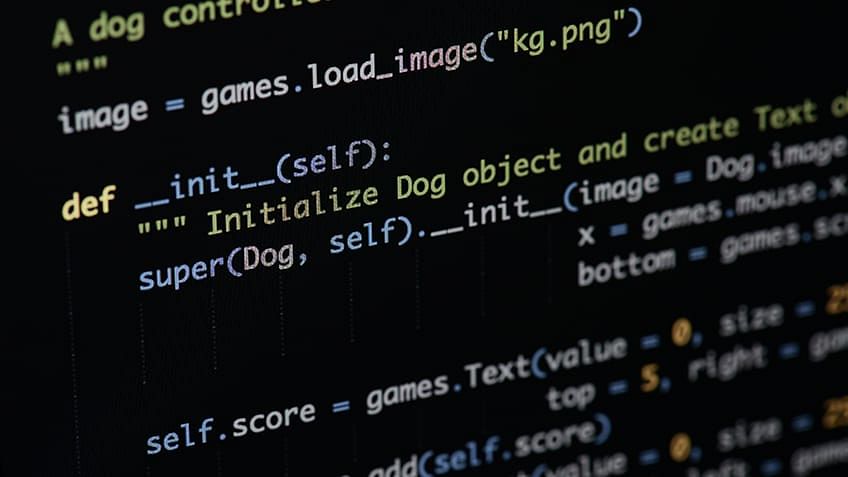Antwort What is the basic concept of Python? Weitere Antworten – What are the basic concepts of Python
Python has a simple syntax similar to the English language. Python has syntax that allows developers to write programs with fewer lines than some other programming languages. Python runs on an interpreter system, meaning that code can be executed as soon as it is written.These principles are the following:
- Single-responsibility principle (SRP)
- Open–closed principle (OCP)
- Liskov substitution principle (LSP)
- Interface segregation principle (ISP)
- Dependency inversion principle (DIP)
Start with the fundamentals of Python. This includes understanding the syntax, data types, control structures, functions, and more. Data manipulation. Learn how to handle and manipulate data using Python libraries like pandas and NumPy.
What is the basic use of Python : Python is commonly used for developing websites and software, task automation, data analysis, and data visualisation. Since it's relatively easy to learn, Python has been adopted by many non-programmers, such as accountants and scientists, for a variety of everyday tasks, like organising finances.
Is C++ better than Python
C++ duel lacks a clear winner, as the better choice depends on individual preferences and project requirements. Python excels in quick learning and the rapid development of small programs. In contrast, C++ is suitable for large projects and exploring multiple languages, although it requires more time to master.
Can I learn, Python in a month : Read on for tips on how to maximize your learning. In general, it takes around two to six months to learn the fundamentals of Python. But you can learn enough to write your first short program in a matter of minutes. Developing mastery of Python's vast array of libraries can take months or years.
These four pillars are Inheritance, Polymorphism, Encapsulation and Abstraction. In this article we are going to explore these four pillars of object-oriented programming.
Beautiful is better than ugly. Explicit is better than implicit. Simple is better than complex. Complex is better than complicated.
Is Python easy for beginners
Why learn Python Python is widely considered among the easiest programming languages for beginners to learn. If you're interested in learning a programming language, Python is a good place to start. It's also one of the most widely used.Yes, it's absolutely possible to learn Python on your own. Although it might affect the amount of time you need to take to learn Python, there are plenty of free online courses, video tips, and other interactive resources to help anyone learn to program with Python.Python can be considered beginner-friendly, as it is a programming language that prioritizes readability, making it easier to understand and use. Its syntax has similarities with the English language, making it easy for novice programmers to leap into the world of development.
Python is also easy to learn because it is an interpreted programming language. This means that you can run each line of code once you have finished writing it, allowing you to immediately check it and make adjustments if needed — a big help to those who are still learning and a time-saver for coders everywhere.
Is Python enough to get a job : Python alone isn't going to get you a job unless you are extremely good at it. Not that you shouldn't learn it: it's a great skill to have since python can pretty much do anything and coding it is fast and easy. It's also a great first programming language according to lots of programmers.
Should I learn Python or Java : In summary, if you're a beginner or interested in areas like data science and web development, Python may be a better choice due to its simplicity and extensive libraries. If you're targeting performance-critical applications, enterprise development, or Android app development, Java might be the better option.
Is 2 hours a day enough to learn Python
How Many Hours Does it Take to Learn Python If you're a beginner and you want to learn Python in two months or less, you would need to devote a full-time schedule to learning Python. If you spend 40 hours a week learning Python, it could ultimately take around 250 hours to fully develop your Python skills.
Features in Python
- Free and Open Source.
- Easy to code.
- Object-Oriented Language.
- GUI Programming Support.
- High-Level Language.
- Large Community Support.
- Python is a Portable language.
- Python is an Integrated language.
There are a lot of built-in modules in Python. Some of the important ones are – collections, datetime, logging, math, numpy, os, pip, sys, and time.
What are the 7 features of Python : Features in Python
- Free and Open Source.
- Easy to code.
- Easy to Read.
- Object-Oriented Language.
- GUI Programming Support.
- High-Level Language.
- Large Community Support.
- Easy to Debug.








